Cottonid Studien
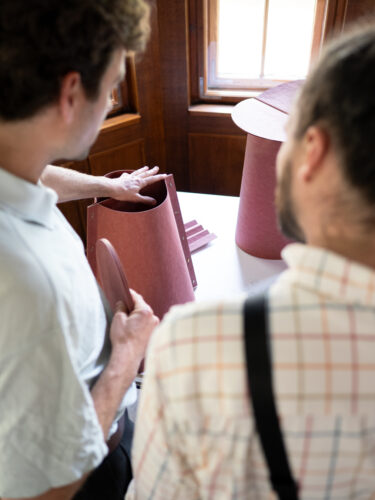
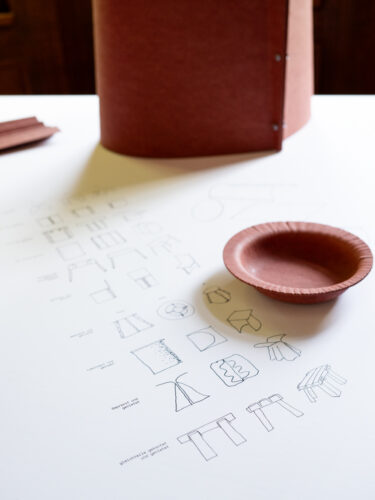
The idea, the work process and the FUNKEN Kolleg “Fraunhofer IWU X Kollektiv Plus X”.
(c) Videography and editing by Marcel Seerig. Bachmann, Schmidt & Seerig GbR | TD Media
Participants
Collective Plus X
Sascha Henken
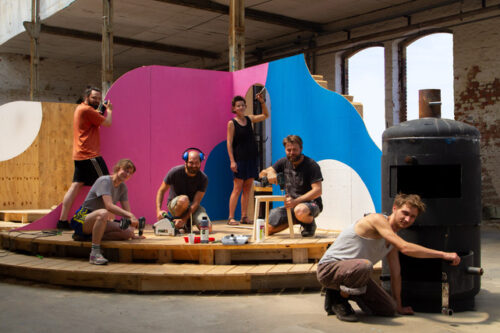
Sascha Henken is co-founder of the collective Plus X, founded in 2027 . It works at the interface of design, art and urbanism. The aim of the collective is to promote democratic structures and strengthen social participation through creative approaches.
X
Fraunhofer IWU
Dr Julia Schönherr
 Dr Julia Schönherr is a scientific advisor to the institute management at the Fraunhofer Institute for Machine Tools and Forming Technology IWU in Chemnitz. She is responsible for the strategic dovetailing of research and institute management with a focus on process technologies.
Dr Julia Schönherr is a scientific advisor to the institute management at the Fraunhofer Institute for Machine Tools and Forming Technology IWU in Chemnitz. She is responsible for the strategic dovetailing of research and institute management with a focus on process technologies.
The result of artistic and technological collaboration – Cottonid studies
How can we bring an old material into a new form?
Cottonid, also known as vulcanised fibre, is a material based on cellulose. It is one of the oldest plastics and has been produced industrially since 1859. In contrast to the plastics commonly used today, Cottonid is not based on mineral oil, but is made from cotton fibres, which are by-products, waste or rejects from clothing production. In the past, for example, suitcases were made from vulcanised fibre. Today, cotton fibre is only used in a few areas of application – for example for seals or as a decorative element in knife handles.
We are trying to find a new form for this old material, because Cottonid has many positive properties. It is compostable and no adhesives, resins or mineral oil are used in its production. In addition, the base material is obtained from waste products from cotton production, is based on a renewable raw material and is therefore very environmentally friendly. Compared to conventional plastics, Cottonid is also moisture-regulating and flame-retardant.
The object on which we are conducting our material studies is an archetypal piece of furniture: the stool. Seating furniture is one of the first pieces of man-made furniture. They are not only used for comfort, but also mark places where people come together. Above all, however, the stool demonstrates the strengths of the Cottonid: it is light and stable – making it possible to produce stable and light seating furniture with relatively little material.
Photographs: (c) Michele Scognamillo

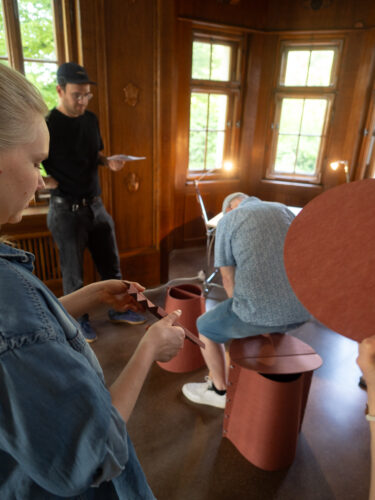
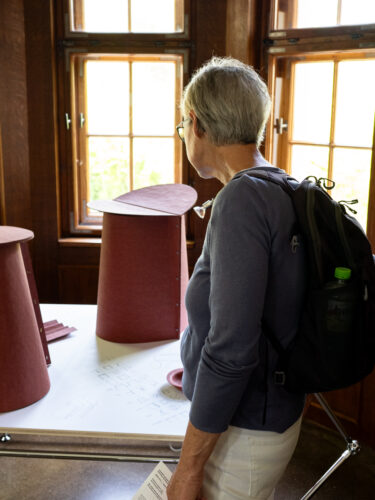

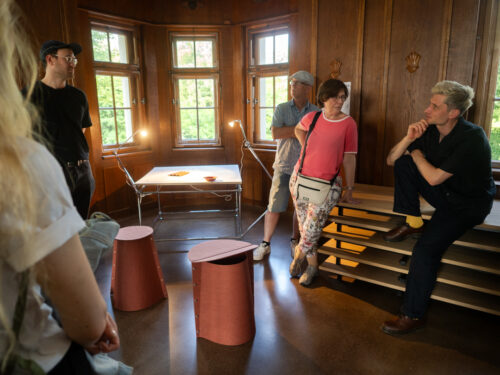
Backgrounds:
The collaboration between Kollektiv X and Fraunhofer IWU is characterised by a shared interest in materials research. The IWU is one of the leading institutes for resource-efficient manufacturing and pursues the goal of developing sustainable production processes. This context gave rise to an interest in vulcanised fibre, also known as cottonid – a traditional material that is now gaining new relevance in lightweight construction.
The engineer Dr Julia Schönherr is committed to the visibility of technical issues. With Kollektiv X – represented by co-founder Sascha Henken – she has found a partner who negotiates social issues through design and large-scale installations in urban spaces. Together they ask: Which materials are suitable for responsible design, and how can technical and social aspects be combined?
The collaboration shows how art and science pursue common goals despite different approaches: Making knowledge visible, helping to shape social processes and opening up new spaces for debate.





